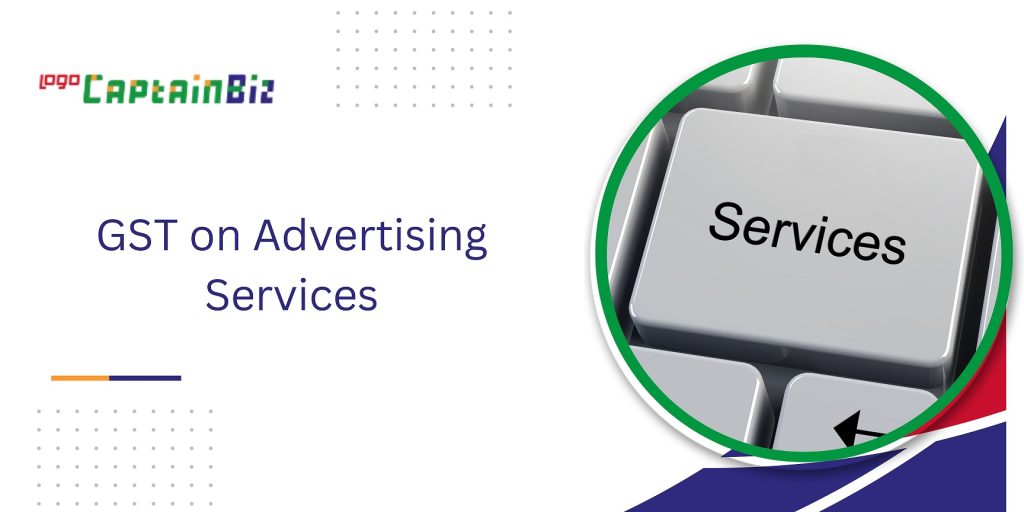Goods and Services Tax or GST has completely revolutionized the taxation system in India. It impacted several sectors or industries, and advertising is no exception. The inception of the GST system has brought significant changes in advertisements and advertising services in India. This detailed guide will discuss the implementation of GST on advertisement.
Also, it will explore the benefits of advertising via ad agency services, including the requirements and taxability involved in this. So, without further delay, let’s quickly dive right in!
Advantages of GST on Advertising Services and Advertisement
Advertisement has become a crucial part of every business nowadays. Without it, they won’t be able to reach their potential customers in less time. It has become commonplace for effective communication between buyers and companies. According to section 5 (3) of the IGST Act, 2017, the GST on advertising services has become mandatory.
However, look at the following points to know the benefits of GST on advertisements and advertising services.
-
Simplified GST Registration
First and foremost, GST has streamlined the entire tax structure, replacing the complicated indirect tax collection process, including VAT, excise duty, and service tax. This simplification has drastically reduced the compliance burden on advertisers and other online or offline agencies. As a result, it promotes ease of doing business.
-
Seamless Flow of Input Tax Credit
The GST on advertisement also allows for a more streamlined and efficient flow of input tax credits or ITC. It further enables advertising businesses to claim credits for the taxes paid on the inputs and services, which once was a difficult task under the previous tax regime. This has led to cost savings for advertising agencies, translating to potentially lower advertising costs for businesses.
-
Efficient Tax Collection System
The GST on advertisement has facilitated a more efficient and transparent tax collection system. It further reduces tax evasion and boosts government revenue, which can be further reinvested into infrastructure and development projects.
All in all, GST implementation created a prominent playing field for advertising agencies to promote fair competition and consistent market growth.
Taxability and Requirements of Advertising Sectors

Understanding the taxability and requirements of the advertising sector is crucial for compliance. Remember, the GST rate on advertising services varies based on the type of service and the nature of the advertisement. The recipient of the services bears the tax liability, generally the advertiser. So, to meet the specific GST requirements, businesses must maintain accurate records of transactions, compute tax liabilities, and file GST returns according to the prescribed timeline.
Also, it is worth noting that the GST on online advertisement also is subject to change depending on the type. Additionally, services offered by foreign clients may be subject to reverse charge mechanisms, where the recipient is responsible for paying GST.
GST on Advertisements Via Ad Agencies
The advertising agencies play a crucial role in the advertising industry, and their tax treatment under the GST is crucial. Advertising services offered by agencies are subject to GST at the standard rate.
So, when the agencies procure goods and services for their clients, they can avail input tax credit on the GST paid, reducing their entire tax liability. However, the ad agencies must ensure compliance with GST regulations because failure to do so may result in penalties.
GST on Advertisement Via Digital Media
Advertising via digital media involves the participation of two key parties, including the advisers and the publishers or administrators. The advertiser is the entity or an individual with a need to promote a product, or a website that seeks to convey their message effectively to the target audience.
The publisher, on the other hand, is responsible for disseminating these advertisements to the intended audience. Here, GST on advertisement via digital media is typically levied at a rate of 18%.
The advertising companies or businesses often make substantial investments in the high-end electronic equipment for their operations. Under the GST framework, now they are entitled to claim credit for the taxes paid on those electronics. It further fosters financial transparency and ease of conducting business.
Conclusion
The implementation of GST on advertisement has brought significant changes and benefits. The simplified tax structure and the availability of input tax credits are significant advantages of GST on advertising services and advertisements. So, whether it’s advertising through digital media or ad agencies, GST has introduced a level of uniformity and transparency that promotes economic growth.
Read More: Requirements And Eligibility For GSTR-5 Registration
Looking for a one-stop solution to manage your GST-related tasks, including organizing invoices, consider opting for the online GST billing software from CaptainBiz. It streamlines the billing process and helps businesses to stay GST-compliant. Try a 14 days free trial now.
Frequently Asked Questions
Is GST applicable to all the professional services?
No, GST is not applicable to all professional services. However, it is applicable to most professional services, including advertising. The taxability and rates may vary depending on the nature of the services and other factors.
How will the GST be implemented on advertising outside of India?
The advertising services provided by the registered person outside of India to Indian individuals are subject to GST via the reverse charge mechanism. The recipient in India is responsible for paying the GST to the government.
Is newspaper advertising exempted from GST?
Newspaper advertising is generally not exempted from GST. It is subject to GST at the standard rate, which is currently at 18%. However, the accurate rate may vary depending on the type of newspaper and the nature of the advertisement.
How much GST is generally charged on advertisements and advertising services?
The GST on advertisements is generally charged at 18%. However, the rates may change to 5% depending on factors such as the medium used for advertising and the type of service. So, it is crucial for businesses to talk with an expert to know the latest GST rates.
